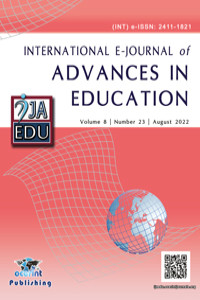Öz
Economic practice has categorically proved that accounting plays an important role in the management of any enterprise. In this context, a current issue for any reporting unit is the establishment of a lawful, appropriate and effective organization of activities and accountability, the implementation and use of management models and practices. A well-developed accounting system is a prerequisite for the effective functioning of the management information system. In thus outlined aspects, the accounting system of the enterprise is defined as an information system, one of the most important subsystems of the management system, designed to solve tasks concerning: 1) the comprehensive reporting of business operations, processes and results of economic activity; 2) the optimal analytical nature of the objects of accounting; 3) the provision of the management of the enterprise with information about the types of expenses (in quantity and value by types of activities) and revenues (in value by types of activities); 4) the monitoring and analysis of deviations from the set parameters; 5) the accounting analysis of the financial statements; 6) the provision of opportunities for budgeting the activity and others. At the same time, the optimization of accounting today is impossible without its computerization and automation. In recent years, the computerized accounting system has acquired a new meaning and content, namely all processes (production, accounting, supply, sales, pricing, analysis, budgeting, etc.) to function in combination - the so-called integrated accounting information system.
Research on the practice of non-financial corporations shows that the people who work with, respectively administer, the integrated accounting information system in the enterprise, are usually (although not only) the people who draw up the financial statements and the operational accountants. This naturally requires the specialists with higher accounting and economic education to have integrated knowledge, skills and competences, including in the long run.
The paper has elements of static research. The sample is formed by universities in North-Central Bulgaria, accredited in the professional field 3.8. Economics, which teach students in accounting in the Bachelor's and Master's degrees for 2022. Statistical tools and data analysis are used. The results are presented in the form of a description and analysis of the technology and organization of the process of teaching accounting in the different educational forms (full-time, part-time and distance), good practices in teaching theory, the degree of practical orientation of training, undergraduate practice and graduation perspectives in the selected universities.
At the same time, a dynamic study was conducted. The sample included enterprises from the non-financial sector in Bulgaria which have a separate accounting department, selected using the method of random non-recurrent selection. The methodology of a structured interview was used. The results of the study are expressed in establishing the expectations of employers in terms of knowledge, skills and competences of accounting staff and identifying the new requirements for specialists with higher accounting and economic education, namely to perform many integrated roles, including active participation in the management process. The attitudes towards the specialists with higher accounting and economic education to create value, to report and preserve the created value are analyzed.
The limitations of the study stem from its research focus, which is on the challenges of teaching accounting in the higher education institutions that offer specialized economic training in Bulgaria.
As a result of the research, the need for some changes in accounting training was identified, dictated by the growing role of specialists with higher accounting and economic education in the management process of enterprises. Possible reforms in the methods and organization of training of future accountants are analyzed as well as the need for timely updating of qualification descriptions, syllabi, curricula and others in the course of acquiring up-to-date professional knowledge and competences in the higher education institutions engaged in the preparation of accounting and economic staff as a process based on meaningful learning activities, performed including in an interactive environment.
Anahtar Kelimeler
Accounting teaching learning higher education institutions specialists with higher accounting and economic education
Destekleyen Kurum
D. A. Tsenov Academy of Economics, Svishtov, Bulgaria
Kaynakça
- Reference 1 Prof. Dr. Michael Dochev, D. A. Tsenov Academy of Economics, Bulgaria
- Reference 2 Assoc. Prof. Dr. Biser Krastev, University of Agribusiness and Rural Development, Bulgaria
Öz
Kaynakça
- Reference 1 Prof. Dr. Michael Dochev, D. A. Tsenov Academy of Economics, Bulgaria
- Reference 2 Assoc. Prof. Dr. Biser Krastev, University of Agribusiness and Rural Development, Bulgaria
Ayrıntılar
| Birincil Dil | İngilizce |
|---|---|
| Konular | Alan Eğitimleri |
| Bölüm | Makaleler |
| Yazarlar | |
| Yayımlanma Tarihi | 4 Eylül 2022 |
| Gönderilme Tarihi | 6 Temmuz 2022 |
| Yayımlandığı Sayı | Yıl 2022Cilt: 8 Sayı: 23 |
Published and Sponsored by OCERINT International © 2015 - 2023
Contact: ijaedujournal@hotmail.com
International E-Journal of Advances in Education by IJAEDU is licensed under a Creative Commons Attribution-NonCommercial 4.0 International License. Permissions beyond the scope of this license may be available at http://ijaedu.ocerintjournals.org



